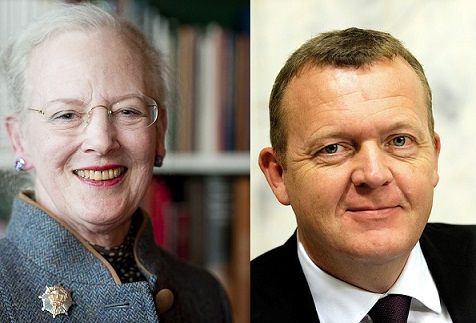One of the activities shared by most Danes over New Year is watching the televised speeches given by both the queen and the prime minister.
As always, every word is pored over and analysed in the media and on social media, so as the butler in that other hardy Danish New Year’s TV perennial ‘Dinner for One’ memorably says: “Same procedure as every year” then.
A good reaction
Even arch republicans can feel a bit sorry for the queen, given she has to walk a very narrow tightrope in terms of not actually saying anything that could be construed as political but still saying something meaningful.
Although this has been an issue with some people in the past, the consensus on Twitter and Facebook appears to be that this year she succeeded in spades.
As well as what could be considered a sideswipe towards rapacious bankers – or as she put it, those in responsible positions who don’t know the difference between what is mine and what is thine – the queen also spoke directly to children and young people.
Youngsters hold the key
Taking up the thread of young people and environmental activism, she pointed out that it was the young who seemed especially concerned by climate problems and global warming.
“That is why we need to listen carefully to young people when we discuss how we can avoid damaging the balance in nature,” Margrethe said.
Also aimed at the young was a caution not to lose track of thoughtfulness and civility in today’s ‘look at me’ culture, which also creates unnecessary demands and pressure on the young.
The queen added a plea aimed at the responsible use of social media, pointing out that it is all too easy to fire off hurtful and damaging missives behind the cloak of anonymity that social media provides.
She got it right
A number of prominent Danish politicians were not slow to show their approval on Twitter.
“Excellent speech by Queen Margrethe. The right people received a mental rap over the knuckles. The right people were praised. Children were addressed and climate was discussed, so a good speech,” said Uffe Elbæk from Alternativet.
SF’s leader Pia Olsen Dyhr agreed: “Great to hear that the queen remembers the important green agenda in her New Year’s speech!”
A worry shared
PM Lars Løkke Rasmussen might have been expected to use his speech as a platform to set out the government’s agenda and achievements prior to the next election, which will take place some time next year – at the latest on June 17.
Admittedly he started off with a litany of congratulation, mentioning in quick succession record high employment, fewer people on benefits, more efficient cancer treatment and wind turbines almost able to supply Denmark’s entire electricity demand on a windy day.
However, he soon became more reflective, saying: “I do have worries and I’m sure many of you share them.”
He went on say that he also wanted to see the other side of the coin because “that is how the world is – not only bright and shiny but also disturbing and marked by history.”
The PM then provided an analysis of the state of the world, focusing mainly on the economy and international institutions. Both Brexit and the US leaving the Paris Agreement on climate were specifically mentioned.
Hard line needed
Regarding immigration, the PM justified the government’s hard line immigration policy.
“If we want Denmark to continue to be a land in harmony, then we should not let more [foreigners] in than we can assimilate and we must place demands on those who are here,” he argued.
“When coming to Denmark is a choice – something you choose – then we can certainly demand that you really choose it. Put secular law over religious law, as that is what we do here.”
There was also a fair amount about the health reforms – both regarding successes and shortcomings. The PM went out of his way to praise health service personnel and promised to step up the training of more nurses.
A plea for unity
In a leading article in Politiken it was suggested that the PM was trying to unite the nation across political divides.
However, the newspaper pointed out that the speech “stands in stark contrast to the policy that his government has been carrying out for the last three and a half years.”.
“The government has recently rejected a joint solution to the migration crisis and instead has chosen to undermine the EU by going solo with countries like Austria and Hungary,” the leader writer concluded.















